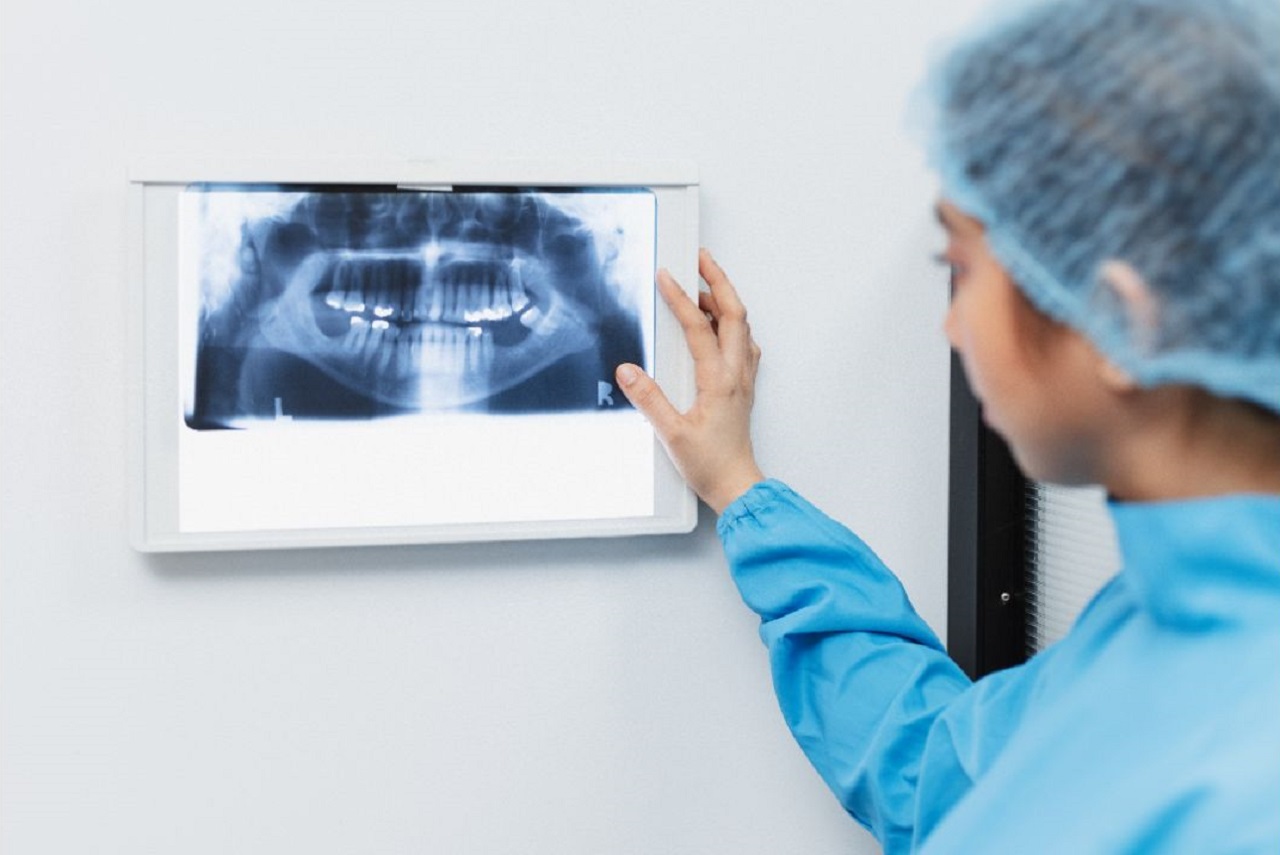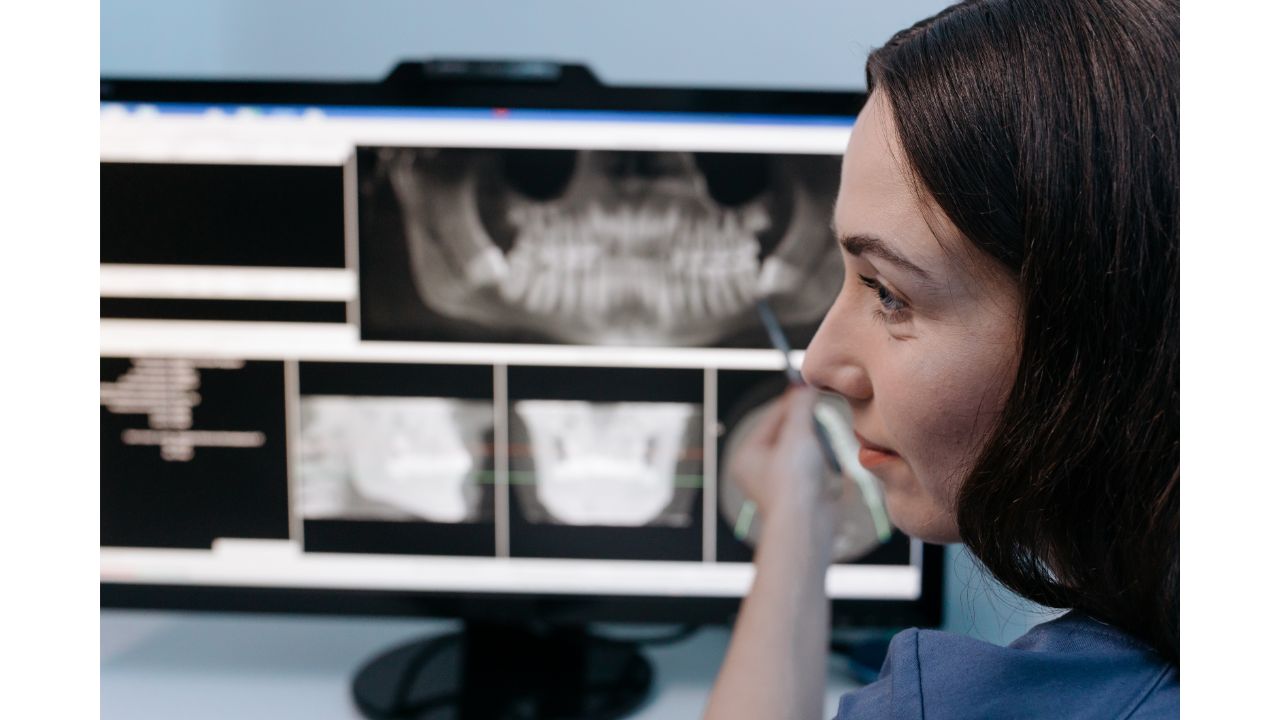Dentist X-rays are generally safe, but precautions are taken to minimize radiation exposure. Dentist X-rays are an essential part of dental care, allowing dentists to identify potential problems such as tooth decay, gum disease, and oral infections that may not be visible to the naked eye.
X-rays use a small amount of radiation, but advancements in technology and strict safety protocols have significantly reduced the risk. Dentists take precautions like lead aprons and thyroid shields to protect patients from unnecessary exposure. The benefits of X-rays in diagnosing and treating oral health issues far outweigh the minimal risks involved.
It is important to discuss any concerns with your dentist, who can explain the necessity and safety measures taken during the x-ray process.

Expert Opinion: Unveiling The Truth About Dental X-Rays
Dental X-rays have been an essential part of dental care for many years, providing valuable information to dentists for accurate diagnoses and treatment planning. However, concerns regarding the safety of dental X-rays have led to questions and debates among patients.
To shed light on this matter, let's delve into an expert analysis of the benefits and risks of dental X-rays and explore the role of technology in improving dental X-ray safety.
Expert Analysis: The Benefits Vs. Risks Of Dental X-Rays
Dental X-rays offer several benefits in terms of diagnosis, prevention, and monitoring of oral health. These advantages must be weighed against the potential risks associated with radiation exposure. Here are the key points to consider:
- Diagnostic accuracy: Dental X-rays allow dentists to identify tooth decay, cavities, gum disease, and other oral health issues that may not be visible to the naked eye. They play a crucial role in early detection, enabling timely treatment and preventing further complications.
- Treatment planning: X-rays provide detailed images of the teeth, roots, and surrounding structures, aiding dentists in planning various dental procedures such as extractions, root canals, and dental implants. This ensures precise and effective treatments.
- Prevention: Regular dental X-rays help dentists monitor changes in the oral cavity over time and identify potential issues before they become significant problems. They allow for proactive preventive measures, helping patients maintain optimal oral health.
- Radiation exposure: While radiation exposure is a concern, dental X-rays emit minimal radiation. The advancement in technology has led to the development of low-dose X-ray machines, reducing radiation dosage further. Dentists also take necessary precautions, such as using lead aprons and thyroid collars, to minimize exposure.
The above points indicate that the benefits of dental X-rays outweigh the potential risks. However, it is crucial to note that dentists exercise caution and adhere to safety guidelines to ensure patient well-being.
Are Dentist X Rays Safe:The Role Of Technology In Improving Dental X-Ray Safety
Technological advancements have played a significant role in enhancing dental X-ray safety. Here's how technology has contributed to minimizing radiation exposure and improving patient safety:
- Digital X-rays: Digital radiography has gradually replaced conventional film-based X-rays, reducing radiation exposure by up to 80%. Digital sensors capture images electronically, eliminating the need for film development, and enabling immediate viewing. Additionally, digital X-rays offer enhanced image quality and can be easily shared with specialists for consultations.
- Cone beam computed tomography (cbct): Cbct technology provides three-dimensional images of the teeth, soft tissues, nerve pathways, and bone structures. It offers dentists a comprehensive view, facilitating accurate diagnoses in complex cases. Cbct scanners utilize a cone-shaped X-ray beam, focusing radiation only on the area of interest, thus minimizing exposure to surrounding tissues.
- Protective measures: Dentists prioritize patient safety by using lead aprons, thyroid collars, and high-speed film or digital sensors that require shorter exposure time. Additionally, operators follow strict protocols to ensure appropriate X-ray dosage tailored to individual patient needs.
The integration of technology into dental X-rays has significantly enhanced safety measures, resulting in reduced radiation exposure and improved diagnostic capabilities.
Dental X-rays are regarded as safe and valuable tools in modern dentistry. The benefits they provide in accurate diagnosis, treatment planning, and preventive care outweigh the minimal risks associated with radiation exposure. Technological advancements have further enhanced dental X-ray safety by minimizing radiation dosage and improving image quality.
Rest assured, when performed by trained professionals and with the necessary precautions, dental X-rays remain an essential and safe aspect of comprehensive oral care.
Empowering Patients To Understand And Evaluate The Safety Of Dental X-Rays
Are Dentist X-Rays Safe?
Empowering patients to understand and evaluate the safety of dental X-rays
Dental X-rays play a crucial role in both diagnosing and treating oral health issues. However, it's not uncommon for patients to have concerns about the safety of these procedures. Understanding the safety of dental X-rays is essential to make informed decisions about your oral health.
In this section, we will empower you with tips for communicating and addressing safety concerns with your dentist and explore the future of dental X-ray technology and safety.
Are Dentist X Rays Safe:Tips For Communicating And Addressing Safety Concerns With Your Dentist
- Ask your dentist about the necessity and frequency of X-rays: Understand why X-rays are being recommended and how often they are required based on your specific oral health needs.
- Discuss alternative options: Inquire whether there are alternative procedures or imaging techniques that can provide the necessary information without using X-rays.
- Inquire about the type of X-ray equipment used: Different X-ray machines and techniques emit varying levels of radiation. Ask your dentist if they use modern digital X-ray equipment, which significantly reduces radiation exposure compared to traditional film-based X-rays.
- Discuss the use of radiation protection devices: Radiation shields, such as lead aprons and thyroid collars, help minimize exposure to unnecessary radiation. Ask your dentist if these protective measures are offered during X-ray procedures.
- Share your concerns openly: Communicate any apprehensions you may have about dental X-rays with your dentist. A good dentist will take the time to address your concerns and provide you with the necessary information to make an informed decision about your oral health.
The Future Of Dental X-Ray Technology And Safety
- Advancements in technology: The future of dental X-ray technology looks promising. Innovative developments, such as 3d imaging and low-dose radiation machines, aim to further enhance the safety and accuracy of dental X-rays.
- Reduced radiation exposure: With ongoing advancements, the dental industry is actively working to minimize radiation exposure during X-ray procedures. Newer X-ray machines utilize lower radiation doses, making them even safer for patients.
- Enhanced image quality: Future advancements in dental X-ray technology aim to enhance image quality, enabling dentists to detect and diagnose oral health issues with greater precision and accuracy.
- Improved patient experience: The future of dental X-ray technology also focuses on improving the patient experience. Efforts are being made to make the procedures faster, more comfortable, and less invasive for patients.
By understanding the safety measures associated with dental X-rays and being proactive in addressing your concerns with your dentist, you can play an active role in ensuring your oral health is given the utmost priority. As advancements in dental X-ray technology continue to emerge, the future holds even greater promise for safer and more efficient imaging procedures.
Frequently Asked Questions Of Are Dentist X Rays Safe
Is It Safe To Have Dental X-Rays?
Yes, dental x-rays are safe as they use low levels of radiation and protective measures are taken.
How Often Should I Have Dental X-Rays?
The frequency of dental x-rays varies based on your oral health and risk factors, but typically every 1-2 years.
Are Dental X-Rays Necessary For Regular Check-Ups?
Dental x-rays are essential for detecting dental problems early on, even when no symptoms are present.
Can Dental X-Rays Detect Cavities?
Yes, dental x-rays can detect cavities that may not be visible to the naked eye, helping prevent further damage.
Are Dental X-Rays Safe For Pregnant Women?
With proper shielding, dental x-rays pose minimal risk to pregnant women and are considered safe.
Are Children More Susceptible To Dental X-Ray Risks?
Children are more sensitive to radiation, so dental x-rays should be limited and the necessary precautions taken.
Can I Refuse To Have Dental X-Rays?
You have the right to refuse dental x-rays, but it's essential to discuss any concerns with your dentist.
How Much Radiation Exposure Comes From Dental X-Rays?
Dental x-rays have minimal radiation exposure, equivalent to natural environmental radiation received in a day.
Conclusion
Based on the evidence presented, it can be concluded that dental X-rays are generally safe. The advancements in technology have significantly reduced radiation exposure during dental X-rays, ensuring patient safety. Regular dental X-rays are essential for detecting potential oral health issues, such as cavities, infections, and gum disease, that may not be visible to the naked eye.
Moreover, dental X-rays provide dentists with the necessary information to create personalized treatment plans and monitor the effectiveness of ongoing treatments. While the benefits of dentist X-rays outweigh the minimal risks associated with radiation exposure, it is important to note that dentists take precautions to minimize any potential harm.
These precautions include the use of lead aprons, thyroid collars, and high-speed film or digital sensors. Thus, patients can have peace of mind knowing that their dentists prioritize their health and well-being when conducting X-rays.

